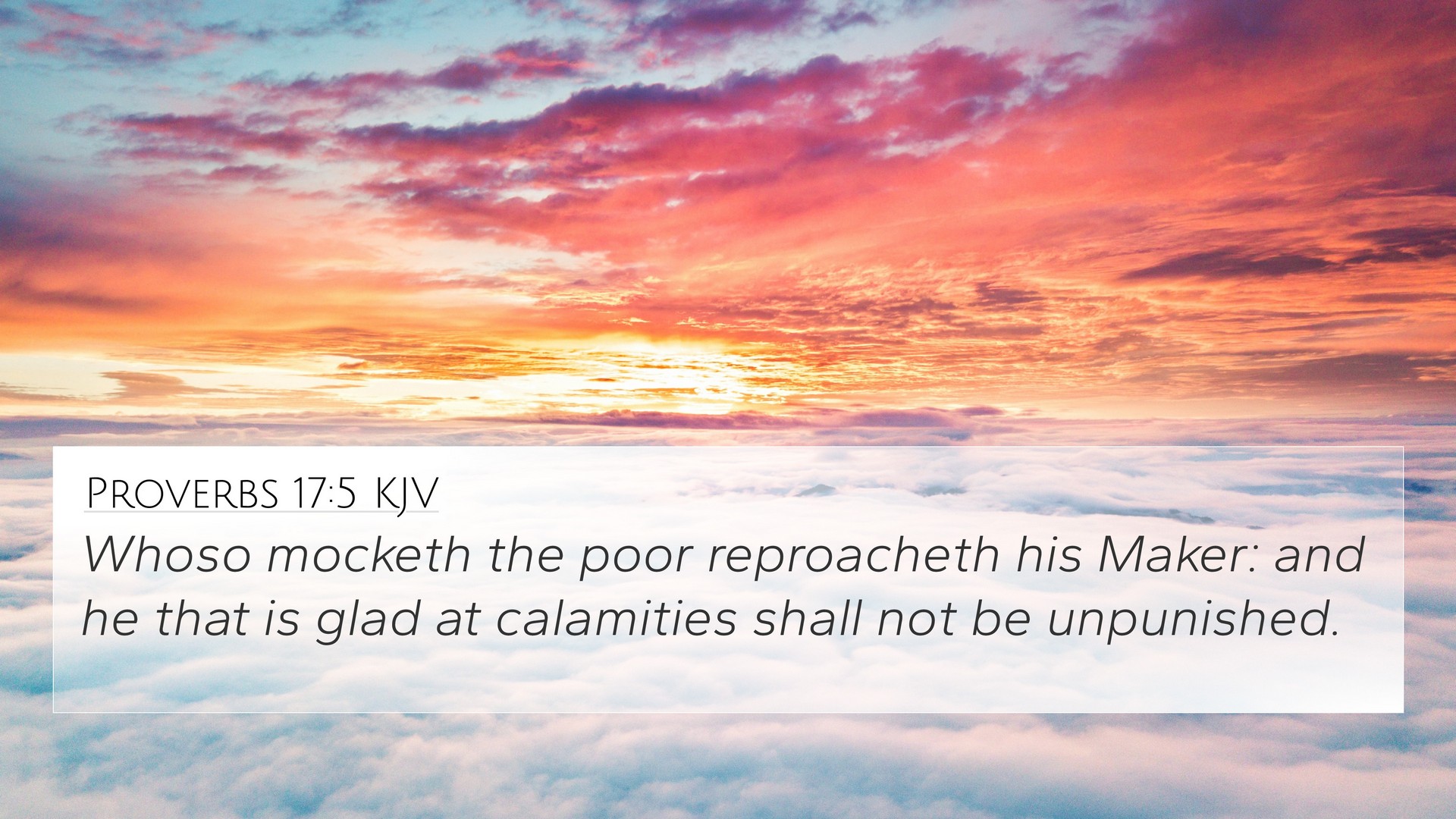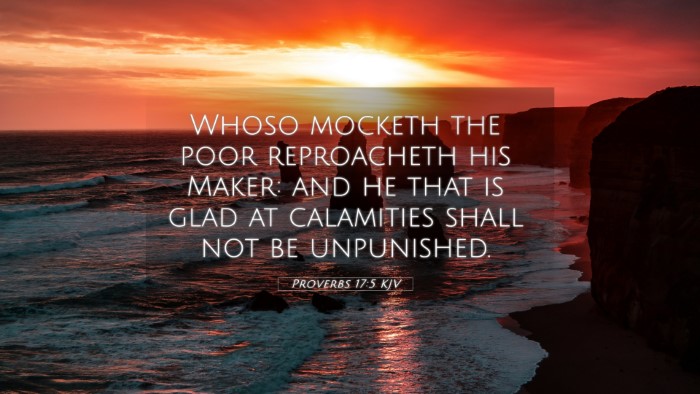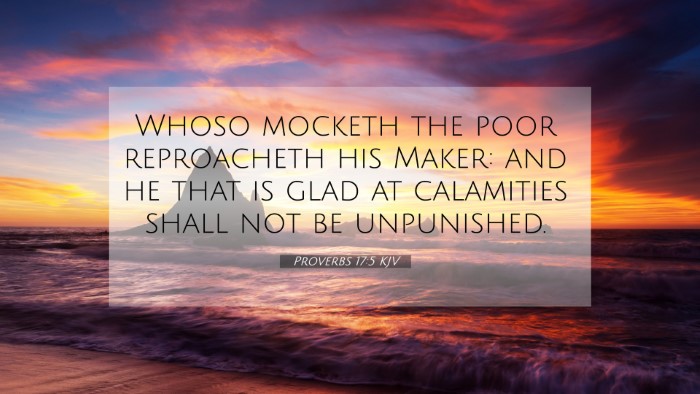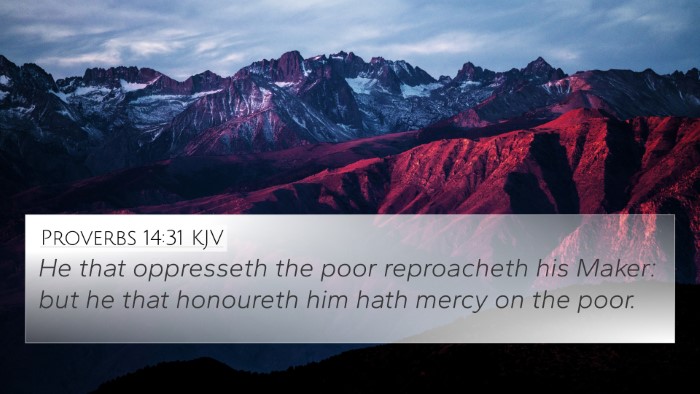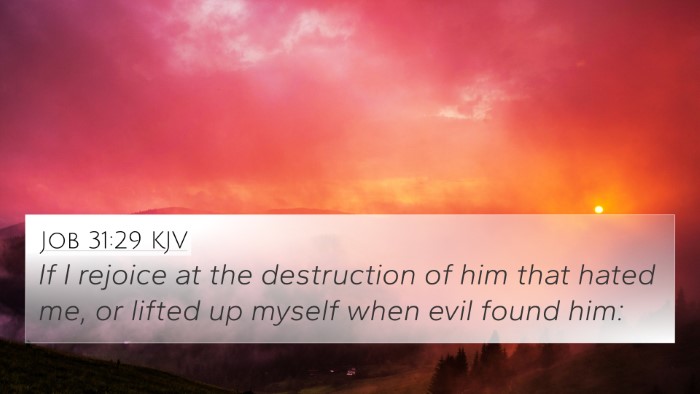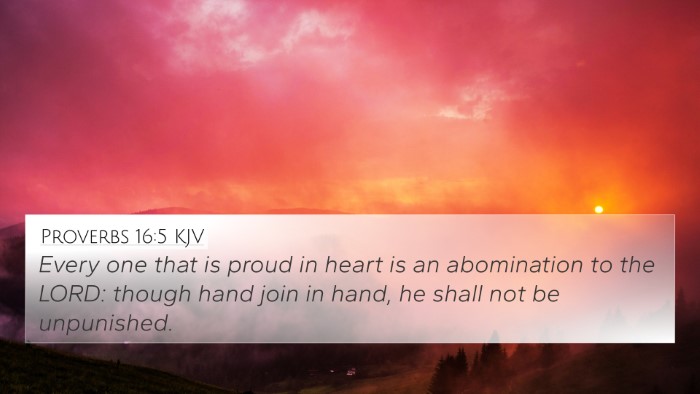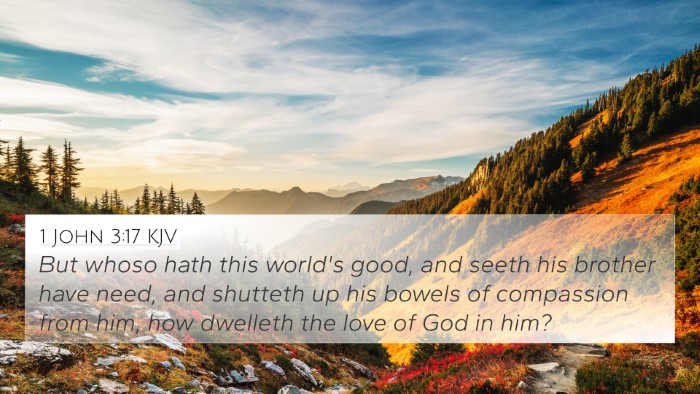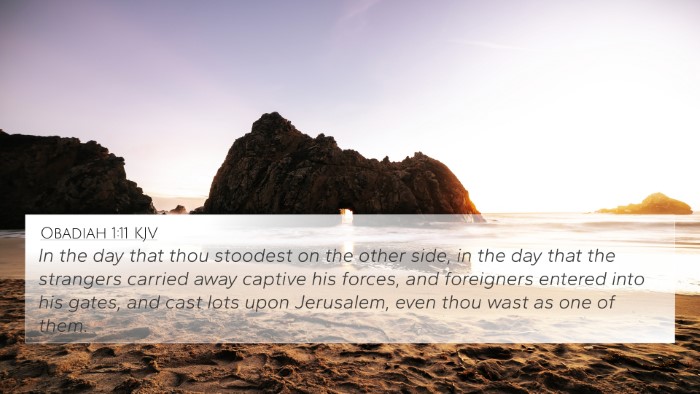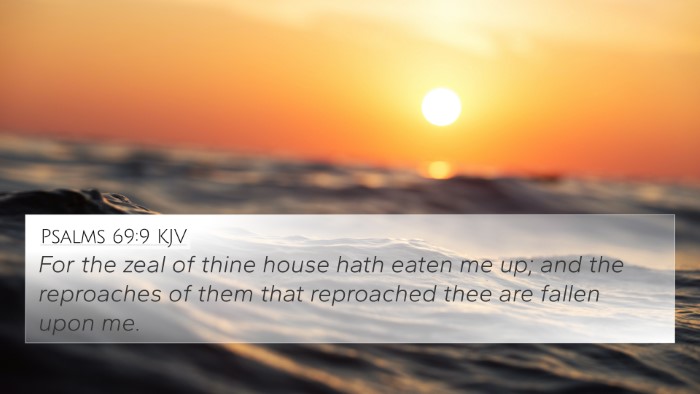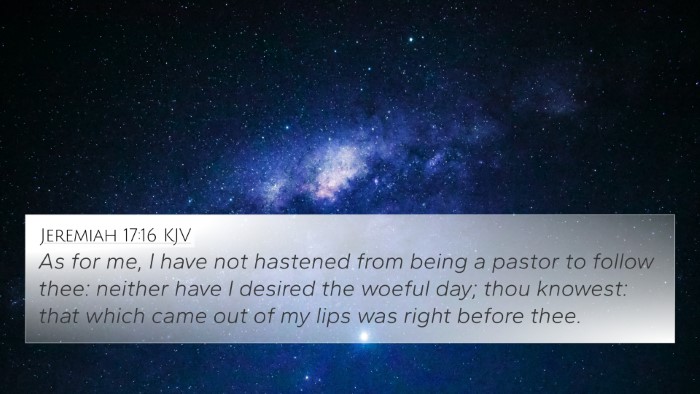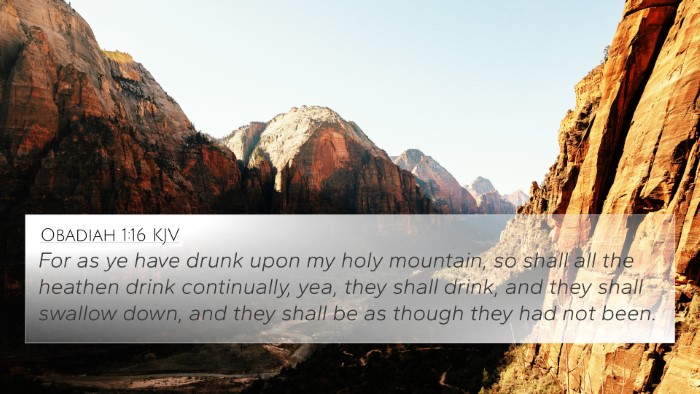Proverbs 17:5: Summary and Interpretation
Verse: "Whoever mocks the poor reproaches his Maker; He who is glad at calamity will not go unpunished." (Proverbs 17:5 NKJV)
Meaning and Interpretations
The verse highlights the moral responsibilities associated with how one treats the poor and disadvantaged. Below are summarized insights based on public domain commentaries by Matthew Henry, Albert Barnes, and Adam Clarke.
Commentary Insights
-
Matthew Henry:
Matthew Henry emphasizes the severity of mocking the poor. This act is not just a social failing but is considered an affront to God Himself, who created all people. The underlying truth is that how we treat the least among us reflects our understanding of God's creation.
-
Albert Barnes:
Barnes highlights that the individual who takes joy in the misfortunes of others, particularly the poor and vulnerable, places themselves in opposition to God's justice. Such behavior will ultimately incur punishment, suggesting that divine retribution is inescapable for those who lack empathy.
-
Adam Clarke:
Clarke points out that mocking the poor damages the fabric of society, fostering an environment of cruelty and disdain. He also highlights that calamity, when celebrated, reveals a heart hardened against compassion and love.
Cross-References
To understand Proverbs 17:5 in a broader biblical context, consider the following cross-references:
- Job 31:16-20 - Job laments how he treated the needy, showing concern for the oppressed.
- Psalms 34:18 - "The Lord is near to the brokenhearted, and saves the crushed in spirit."
- Proverbs 14:31 - "He who oppresses the poor shows contempt for their Maker, but whoever is kind to the needy honors God."
- Matthew 25:40 - "Whatever you did for one of the least of these brothers and sisters of mine, you did for me."
- James 2:5 - "Listen, my dear brothers and sisters: Has not God chosen those who are poor in the eyes of the world to be rich in faith and to inherit the kingdom he promised those who love him?"
- Luke 6:20-21 - "Blessed are you who are poor, for yours is the kingdom of God." This reverses societal values regarding wealth and status.
- Galatians 6:7 - "Do not be deceived: God cannot be mocked. A man reaps what he sows."
Thematic Connections
Proverbs 17:5 has thematic connections that resonate throughout Scripture:
-
Compassion for the Poor:
The Bible consistently emphasizes the importance of caring for the poor (Isaiah 58:7, Psalm 82:3).
-
Justice and Retribution:
There is a recurrent theme of divine justice that punishes arrogance and cruelty (Ezekiel 18:30, 2 Thessalonians 1:6).
-
Mockery and Humility:
Scripture warns against pride and promotes humility (Proverbs 16:5, Luke 14:11).
Exploring Cross-Referencing in the Bible
Understanding Proverbs 17:5 is enhanced through biblical cross-references. Here are some insights into how one can effectively engage in cross-referencing biblical texts:
-
Tools for Bible Cross-Referencing:
Using a comprehensive Bible concordance can help locate verses that are thematically connected.
-
Cross-Reference Bible Study:
Engaging in cross-reference Bible study methods aids in grasping the interconnectedness of Scripture.
-
Identifying Themes:
By identifying shared themes between different books of the Bible, one can draw deeper insights and make connections.
Conclusion
Proverbs 17:5 serves as a powerful reminder of the moral obligation to treat the underprivileged with dignity and compassion. The act of mocking the poor is directly tied to one’s relationship with God, illustrating the importance of love, empathy, and justice within the Christian faith. By exploring cross-references and engaging in thoughtful scripture study, we can unearth rich insights that deepen our understanding of this biblical principle.
